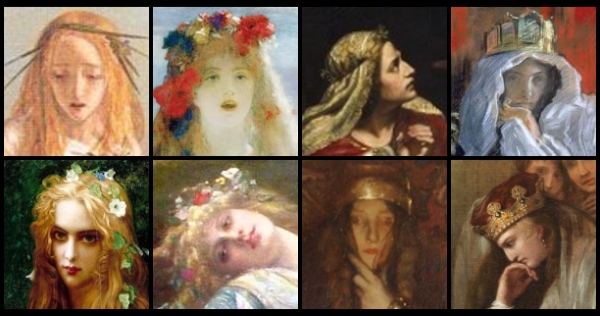Part 29: Pivot from Ophelia to Getrude - and their mysteries

Before completing my series on Ophelia, some elements about Gertrude require scrutiny. The controversy and mystery of Ophleia overlaps with Gertrude in a variety of ways: - Gertrude learns of her son’s love letters to Ophelia, encourages Ophelia’s love to heal her son’s madness, reports Ophelia’s death by drowning, and says at Ophelia’s grave that she wished Ophelia had been her son’s bride. Characters are said to be static (unchanging) or dynamic (changing) in light of developments in the plot and interactions with other characters. Without having to speculate at all whether she has any sort of Christian afterlife in heaven, hell, or purgatory, we might say that Ophelia has something of an afterlife through her example to, and influence on, the Queen. But this requires a clear understanding of a series of events and the evidence in the texts. In upcoming posts, I will explore some of these and other overlaps between Ophelia and Gertrude; the “envious sliver” of the willow that break...



